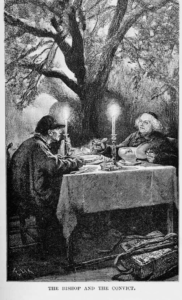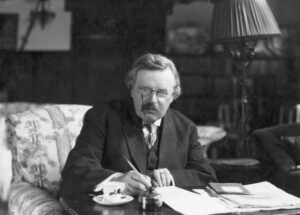[vc_row row_padding_bottom=”30″][vc_column][textbox title=”Take Up and Read” title_color=”#2f2f2f” title_fontsize=”40″ text_under_align=”center” subtitle=”Cherie Harder” subtitle_color=”#757575″ content_align=”center” font_type=”custom” google_fonts=”font_family:PT%20Serif%3Aregular%2Citalic%2C700%2C700italic|font_style:400%20regular%3A400%3Anormal”][/vc_column][/vc_row][vc_row][vc_column width=”1/6″ css=”.vc_custom_1547644032611{margin-top: 20px !important;border-top-width: 0px !important;padding-top: 10px !important;padding-right: 10px !important;padding-bottom: 10px !important;padding-left: 10px !important;background-color: #eeeeee !important;border-top-style: solid !important;}”][imagebox image_url=”16597″ image_hover=”disable” image_text_border_color=”#ffffff”][/vc_column][vc_column width=”5/6″][vc_column_text]Wednesday, July 15, 2020
One of the silver linings of this cloudy year is that the forced isolation and confinement of our once-flitting selves, unwelcome as it has been, has provoked new interest in and efforts at reading. While reading overall has been in steep decline in the country over the past few decades, with less than half of adults reading even one book a year, and the average teenager spending less than nine minutes a day reading (compared to many hours per day with electronic entertainment), the threat of COVID has stemmed this dismal trend, and if book sales over the past two months are a good indicator, more people are picking up, dusting off, and cracking open a good book.
This is, largely in itself, a welcome and worthy change. Against the drudgery of quarantine and the anxieties of the recession, the pleasures of reading are delightful, transporting, and, as Emily Dickinson helpfully reminds us, free:
There is no Frigate like Book
To take us Lands away
Nor any Coursers like a Page
Of prancing Poetry—
This Traverse can the poorest take
Without oppress of Toll
How frugal is this Chariot,
That bears a Human soul.
But the virtues of reading, and learning to read well, are even more significant. As our guest in this Friday’s upcoming Online Conversation, Marilyn McEntyre, wrote in her compelling work Caring for Words in a Culture of Lies: “…The act of reading itself is not only intellectually and emotionally engaging, but morally consequential. How we choose to read, how we submit to or question the terms set by the writer, are choices that shape the habits of our minds and the habits of our hearts. Those habits determine the degree to which we are open to truth in its various guises, and capable of discerning the difference between the ring of truth and the metallic clang of lies.”
Learning to read well takes practice and time. Reading immersively—settling into a book, considering and questioning its characters, ideas, context, and progression—the sort of attentive abiding-with that a worthy work requires is an entirely different activity from the hasty, utilitarian strip-mining of surface meaning that characterizes most of our daily scanning of headlines and social media. As Eugene Peterson, who wrote so often on reading widely, wisely, and well, declared in Eat this Book: “Reading is an immense gift, but only if the words are assimilated, taken into the soul, eaten, chewed, gnawed, received in unhurried delight.”
Reading well develops both a desire for and discernment of what “rings true.” It cultivates respect and delight in “a word aptly spoken,” requires and helps us learn to enjoy and care for language, discern and distinguish truth from lies, and develop a sense of considered empathy. And it sharpens the antennae for (and aversion to) manipulation—the work that misleads, the lurking presence of propaganda, or the failure to understand human nature.
McEntyre argues that reading well is one of several strategies essential to recovering truth and beauty in language, and through it, the broader culture. At a time when falsehood and ugliness seems all too common, it is an enticing renewal of Augustine’s invitation: “take up and read.”
On Friday, July 17th we are delighted to invite you into a conversation with professor, writer, and speaker Marilyn McEntyre on her provocative book, Caring for Words in a Culture of Lies.
Register for our Online Conversation
Recommended Reading and Resources
As we navigate these uncertain times together, we recommend the related resources
below as both an encouragement and catalyst for reflection.
- Politics and the English Language | A Trinity Forum Reading by George Orwell
- Bulletins from Immortality | A Trinity Forum Reading by Emily Dickinson
- Confessions | A Trinity Forum Reading by St. Augustine
[/vc_column_text][/vc_column][/vc_row]


